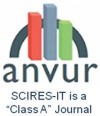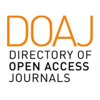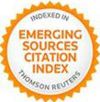Abstract
Virtual reality is proving to be an interesting tool for the visualization of 3d models developed for urban planning. It allows not only interactive visualization, but also the possibility of inserting analogical and informative contents.
The case study relates to the development of a 3D model viewable in virtual reality of the Port of Palermo area, of great urban, historical and logistical interest. The system allows the visualization of its current state, historical emergencies and future developments, as well as the comparison between existing services and those planned in the reconfiguration project.Keywords
Full Text:
PDFDOI: http://dx.doi.org/10.2423/i22394303v10n2p65
References
Autorità Portuale di Palermo (2008). Piano Regolatore Portuale di Palermo, Documento di sintesi. Relazione Generale. Palermo, IT.
Armenio, E., De Serio, F., & Mossa, M. (2018). Environmental technologies to safeguard coastal heritage. SCIRES-IT - SCIentific RESearch and Information Technology, 8(1), 61-78. http://dx.doi.org/10.2423/i22394303v8n1p61
Banini, T., & Picone, M. (2018), Verso una geografia per la partecipazione. Geotema, 56, 3-10.
Bhunua, S. T., Ruthera, H., & Gainb, J. (2003). 3-Dimensional virtual reality in urban management. In Integrated Remote Sensing at the Global, Regional and Local Scale (pp. 201-204). Denver, CO, USA: ISPRS Archives.
Bobbio, L. (Ed., 2004). A più voci. Amministrazioni pubbliche, imprese, associazioni e cittadini nei processi decisionali inclusivi. Napoli-Roma, IT: Edizioni Scientifiche Italiane.
Bourdakis, V., & Day, A. (1997). The VRML Model of the City of Bath. In Proc. Sixth International EuropIA Conference (pp. 1-7), London, UK: Europia Productions.
Ceconello, M., & Spallazzo, D. (2010) Virtual city, virtual landscape, enhanced tool for design and planning. In Proceedings Graphic expression applied to building international conference, X Congreso International Exprésion grafica aplicada a la edificación (pp. 133-141). Alicante, Spain: Editorial Marfil, S.A.
Cellamare, C. (2012). Progettualità dell’agire urbano. Processi e pratiche urbane. Roma, IT: Carocci.
Dalton, R.C., Horn, M., Morton, P.J., & Thompson, E.M. (2012). Virtual city models: avoidance of obsolescence. In Proceedings ECAADe 30th Conference: Digital physicality/physical digitality (pp. 213-224). Praga, Repubblica Ceca: Opus V.D.I.
De Seta, C., & Di Mauro, L. (1981). Palermo. Roma-Bari, IT: Laterza.
Girgenti, G. M. (2018). A virtual reconfiguration of two destroyed neighborhoods in the Old Town of Palermo. SCIRES-IT - SCIentific RESearch and Information Technology, 8(1), 93-104. http://dx.doi.org/10.2423/i22394303v8n1p93
Goethe, J. W. (1885). Goethe’s Travel in Italy. London, UK: George Bell and Sons.
Habermas, J. (1981). The Theory of Communicative Action. Lifeworld and System: A Critique of Functionalist Reason. Boston, USA: Beacon Press.
Inzerillo, S. M. (2017), Urbanistica e società negli ultimi duecento anni a Palermo. Palermo, IT: 40due Edizioni.
Kheir Al-Kodmany, K. (2002). Visualization Tools and Methods in Community Planning: From Freehand Sketches to Virtual Reality. Journal of Planning Literature, 2(17), 189-211.
Kindon, S., Pain, R., & Kesby, M. (eds., 2007), Participatory Action Research Approaches and Methods. London-New York, UK, USA: Routledge.
Levy, R. M. (2011). Virtual reality: a tool for urban planning and public engagement. In 12th International Conference on computers in urban planning and urban management (CUPUM). Bamff (Canada).
Morisi, M., & Perrone, C. (2013). Giochi di potere. Partecipazione, piani e politiche territoriali. Torino, IT: UTET.
Norberg-Schulz, N. (1979). Genius Loci. Milano, IT: Electa.
Picone, M., & Lo Piccolo, F. (2014), Ethical E-Participation: Reasons for Introducing a ‘Qualitative Turn’ for PPGIS. International Journal of E-Planning Research, 3(4), 57-78.
Picone, M., & Schilleci, F. (2019). Il ruolo dei processi partecipativi nella formazione dei pianificatori: l’esperienza di Palermo. In Confini, movimenti, luoghi. Politiche e progetti per città e territori in transizione, (pp. 527-532). Roma-Milano, IT: Planum publisher.
Sclavi, M. (2006). La signora va nel Bronx. Milano, IT: Bruno Mondadori.
Sclavi, M. (2014). Avventure urbane. Progettare la città con gli abitanti. Milano, IT: Elèuthera.
Shneiderman, B., Plaisant, C., Cohen, M., Jacobs S., Elmqvist, N., & Diakopoulos, N. (2017) Designing the User Interface: Strategies for Effective Human-Computer Interaction. London, UK: Pearson Gobal Edition.
Smith, A., Dodge, M., & Doyle, S. (1998), Visual Communication in urban planning and urban design. In Centre for Advanced Spatial Analysis Working paper series (pp. 1-49). London, UK: CASA University College London.
Thompson, E. M., Horne, M. & Fleming, D. (2006). Virtual reality urban modelling - an overview. In CONVR2006: 6th Conference of Construction Applications of Virtual Reality. Orland (USA).
Valzano, V., Negro, F., & Lucarella, D. (2019). Otranto Treasures in 3D. SCIRES-IT - SCIentific RESearch and Information Technology, 9(2), 17-28. http://dx.doi.org/10.2423/i22394303v9n2p17
Yang, L. H., Sun, X. D., & Zhang, H. B. (2011). Relationship between the Least Mesh Numbers of Models and Distance of Viewpoint in Efficient Real-Time Rendering. Applied Mechanics and Materials, 130–134, 213–216. https://doi.org/10.4028/www.scientific.net/amm.130-134.213
Article Metrics
Metrics powered by PLOS ALM
Refbacks
- There are currently no refbacks.
Copyright (c) 2020 Fabrizio Avella, Filippo Schilleci

This work is licensed under a Creative Commons Attribution-NonCommercial-NoDerivatives 4.0 International License.
SCIRES-IT, e-ISSN 2239-4303
Journal founded by Virginia Valzano





